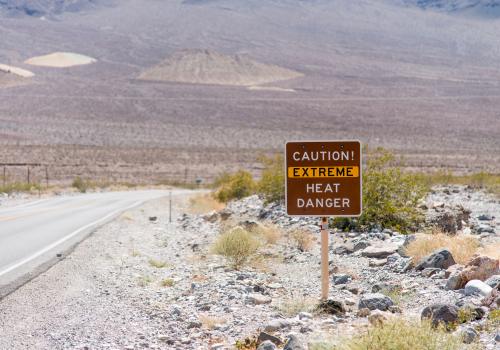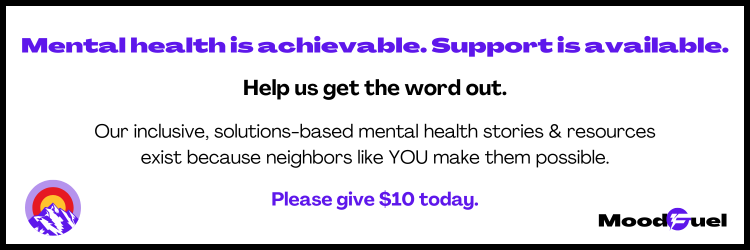By Renata Hill, Moodfuel
During record-breaking heat waves this summer, Coloradans with mental illness and those taking mental health medications need to stay aware to stay safe
Colorado has experienced an unprecedented number of extreme heat events so far this year: a record-breaking five heat advisories in June, baking temperatures surging past 100 degrees for multiple days in July and many spectators sickened at an August air show a few days ago. For those living with mental illness or taking medication to manage a mental health condition, extreme heat can be catastrophic.
The Substance Abuse and Mental Health Services Administration (SAMHSA) noted in a recent brief that hotter temperatures worsen the symptoms of schizophrenia, bipolarity and psychosis. People living with these conditions may have impaired perceptions and not realize they're experiencing heat-related distress or the accompanying heightened emotions. These effects, in turn, may strain work and personal relationships, increase the likelihood of hospitalization or prompt negative interactions with law enforcement.
Problems are compounded if a person with serious mental illness (SMI) has a co-occurring health condition, like heart disease. People with SMI who are unhoused, misuse substances, work outside or reside in marginalized communities are all at higher risk for heat exhaustion or, worse, deadly heat stroke. In a June 2024 statement, the National Alliance for Mental Illness (NAMI) cited other heat-related problems affecting mental health, such as increased social isolation, lack of restful sleep, difficulty concentrating, staying on task and poor work performance.
People taking psychotropic medications to manage mental health conditions also may struggle when it's very hot. High temperatures increase the side effects of antidepressants, anti-anxiety medications and stimulants and can interfere with the ability to sweat or the awareness of a rising body temperature.

Ways to reduce extreme heat risks
- Create a plan to keep yourself or your loved one safe during a heat wave
- Learn about public, air-conditioned spaces like libraries, shopping centers or temporary cooling centers where you can decrease your body temperature and hydrate
- Speak to a doctor about the ways extreme heat may affect you or a loved one when using mental health medications
- Learn to recognize your body's signs of heat-related distress
- Drink plenty of water
- Wear loose, lightweight, light-colored clothing
- Take cool showers or baths
- Avoid being outdoors in extreme heat -- cancel or reschedule activities for evenings or early mornings
- Check in -- communicate with vulnerable people who may need support during extended high temperatures.
Resources for managing extreme heat events
- Ready.gov and Heat.gov provide info about prepping for and staying safe during extreme heat events
- Colorado Public Radio has compiled a list of cooling centers along the Front Range
- SAMHSA offers tips about coping with hot weather for people who use medication to manage mental health conditions
- The Centers for Disease Control and Prevention lists symptoms of heat-related illness.



